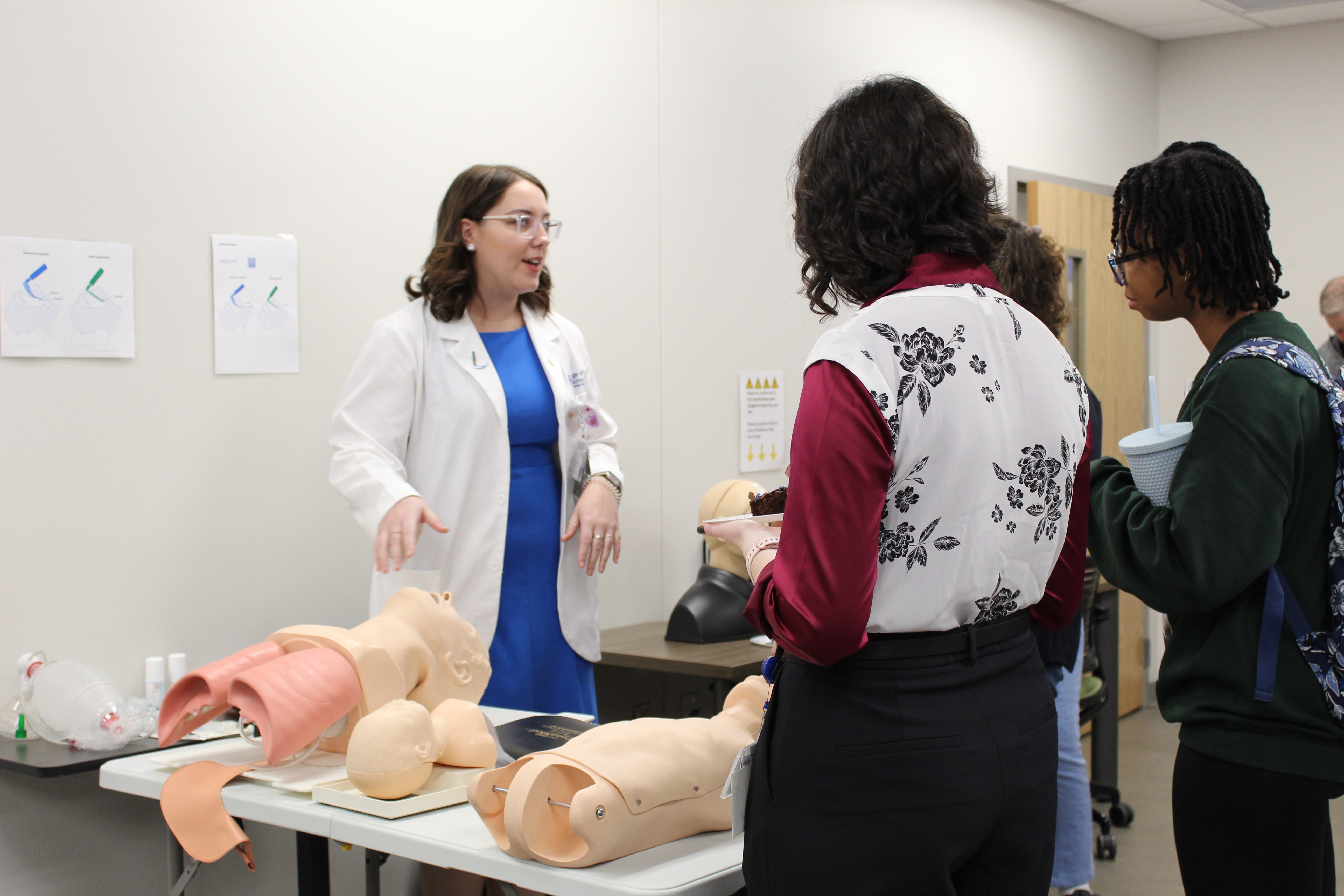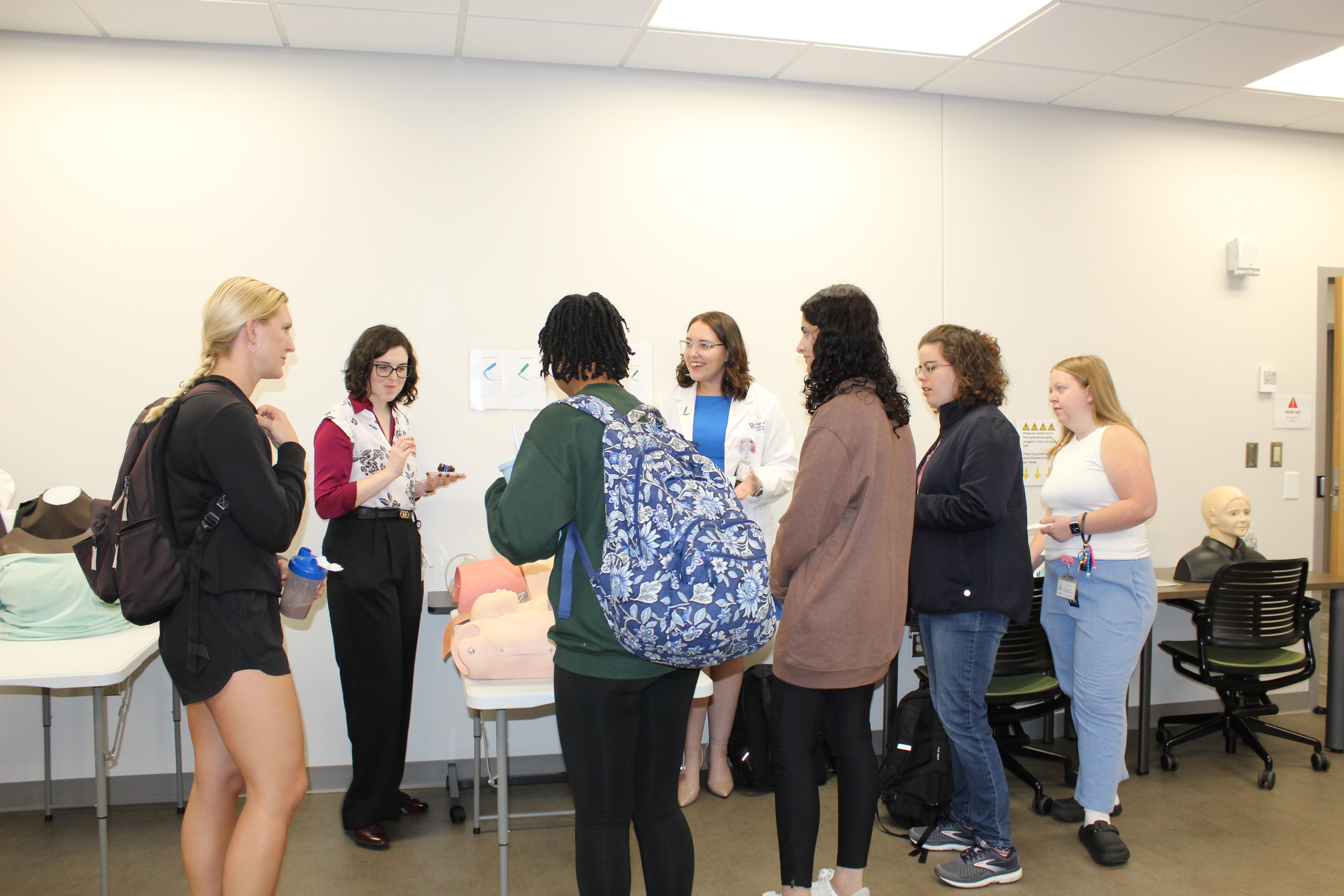Students at the University of Kentucky College of Medicine-Northern Kentucky Campus will now have access to important hands-on skill development experiences with the establishment of its new Development of Clinical Skills (DOCS) Lab.
The DOCS Lab – which was unveiled to the campus on Friday, Oct. 13 – was created with significant input from medical students on campus.
Over the past year, students have successfully taken an underutilized space in the Northern Kentucky University Albright Health Center and turned it into a functioning skills lab. This space will provide students the chance to learn, practice, and receive constructive feedback on their clinical skills from upperclassmen and volunteering local physicians.
There is equipment to practice a wide variety of procedures including suturing and airway management using task trainers.
“This was a student-run effort to enhance the learning experience at the campus,” Associate Dean Holly Danneman, MD, said. “Every day I’m impressed by our learners, and this is a prime example of their creativity and ingenuity, which not only will help them become better doctors, but also improve the training experience here for many more generations to come.”
Megan Ward, a second-year student, helped develop the idea for the DOCS Lab. She said that during her first year, she recognized an opportunity for space and resources that would allow Northern Kentucky Campus students to practice hands-on skill development prior to clinical rotations beginning in the third year of medical school. She was able to recruit fellow students – including Evan Groneman, Natalie Hagan, Sarah Hoffmann, and Emily Paulin – to help bring the idea to life.
“This new addition not only improves the experience and enrichment of the students at our campus, but also continues to embody our value of maintaining a growth mindset and fostering equal opportunity between all regional and main campuses of the University of Kentucky College of Medicine, resulting in more competitive residency applicants and ultimately more well-rounded physicians,” Ward said.




